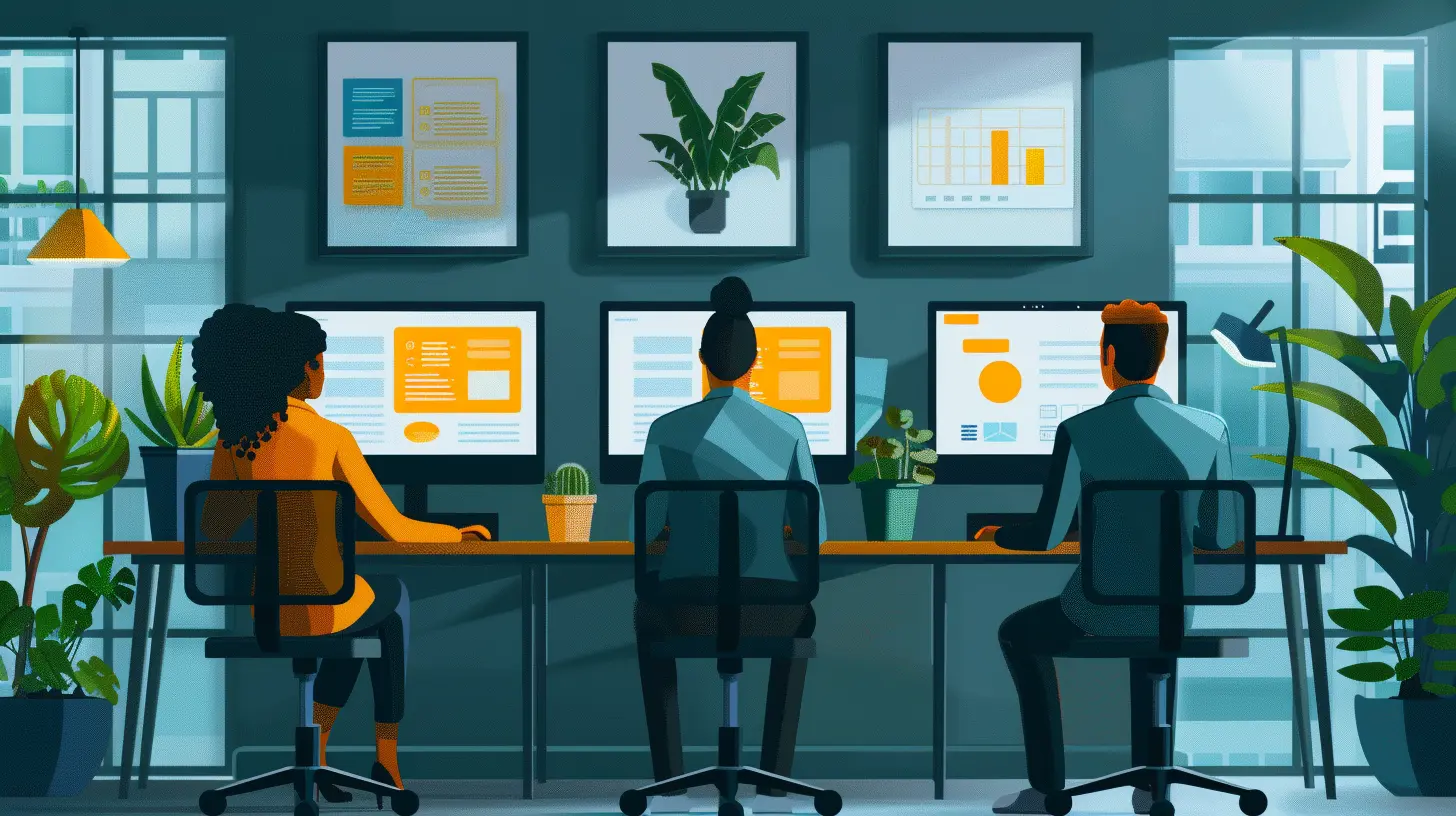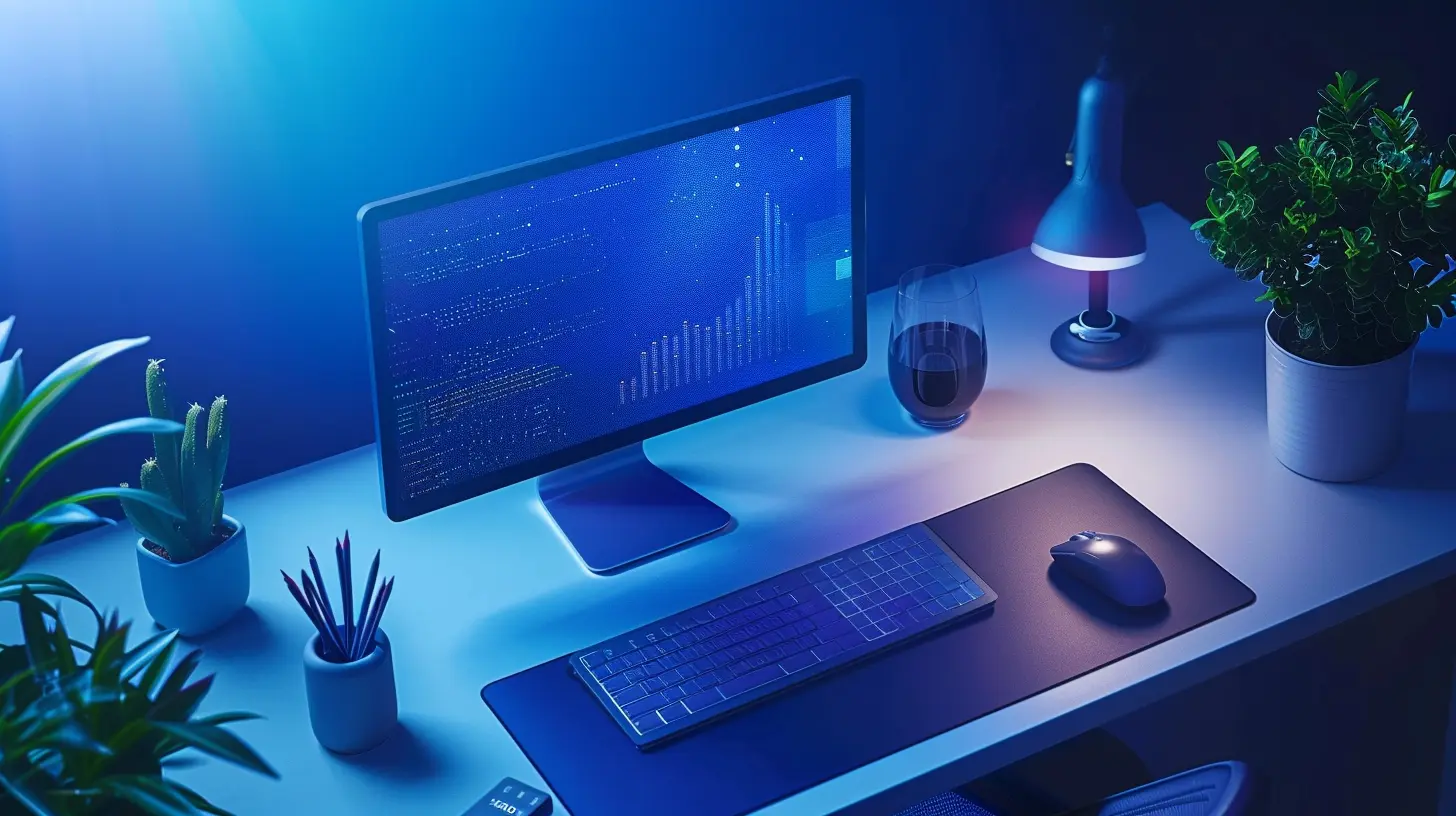Data Privacy for Remote Workers: How to Stay Secure
18 August 2025
Remote work is no longer just a perk — it’s become the new normal for millions of workers across the globe. With this shift, however, comes a significant concern: data privacy. While working from home (or from a coffee shop, your favorite co-working space, or even a beach in Bali) sounds liberating, it also opens up a whole new set of vulnerabilities. If you’re a remote worker or manage remote teams, keeping your digital data secure should be just as important as meeting deadlines or hopping on Zoom calls.
Let’s face it: cyber threats don’t take a break because you're not in the office. In fact, they’re counting on it.
In this guide, we’ll walk through everything you need to know about data privacy as a remote worker — from why it matters to practical, everyday security best practices. And hey, don’t worry — we’re going to keep it simple, clear, and a little bit fun. Because yes, even cybersecurity can be fun (well... sort of).
Why Data Privacy Is a Big Deal for Remote Workers
You might be wondering, “I’m just working on some documents and emails, is that really worth a hacker’s time?” Unfortunately, yes, it is. Even the most seemingly harmless data — client contact details, internal emails, or presentation drafts — can be valuable if it falls into the wrong hands.Here’s why:
- Cybercriminals are opportunistic: They sniff out weak links, and unsecured home networks or outdated software are gold mines for them.
- Remote workers often handle sensitive info: Especially if you work in industries like healthcare, finance, tech, or law.
- Company reputations are at risk: A single data breach can cost a business its trust and in some cases, millions of dollars.
Think of your data like your digital identity. Would you leave your home unlocked with your wallet on the porch? Probably not. Then don’t leave your data unprotected either.
Common Data Privacy Risks You Need to Be Aware Of
Before we dive into how to stay secure, it helps to know what you’re up against. Here are some common threats remote workers face:1. Unsecured Wi-Fi Networks
Public Wi-Fi is a hacker’s playground. If you're working from your local coffee shop, you need to be careful. Anyone with basic tools can snoop on your traffic.2. Phishing Emails
These sneaky emails trick you into clicking malicious links or downloading files loaded with malware. They’re getting more sophisticated every day — some even look like legit messages from your boss.3. Weak Passwords
"Password123" or "qwerty" might be easy to remember, but they’re also the first things hackers try. Bad passwords are like flimsy locks on your digital doors.4. Outdated Software
Using old versions of apps or operating systems is a ticking time bomb. Updates often include security patches — without them, you're running around in a rainstorm without an umbrella.5. Shared Devices
Working on a personal laptop used by your kids for YouTube? Sharing devices across users increases the chance of accidental exposure or malicious downloads.
How to Stay Secure as a Remote Worker
Now the good stuff — how to actually protect yourself and your data while working remotely. These aren’t complicated tech wizard tricks. Think of them more like online hygiene tips. Easy habits that make a big difference.1. Use a Virtual Private Network (VPN)
A VPN encrypts your internet connection, turning it into a secure tunnel for your data. Whether you're working from a home network or a public Wi-Fi hotspot, a VPN makes it hard for snoops to see what you're up to.Pro tip: Make sure you choose a reputable VPN provider. Free ones might sell your data — which kinda defeats the purpose, right?
2. Set Strong, Unique Passwords (and Use a Password Manager)
This one’s a game-changer. A strong password is your first line of defense. Combine uppercase letters, lowercase, numbers, and symbols. And don’t reuse passwords across accounts — if one gets compromised, the rest are vulnerable.Use a password manager to help you generate and store unique passwords securely. No more sticky notes on your monitor.
3. Enable Two-Factor Authentication (2FA)
Passwords are good, but two-factor authentication is better. It’s like putting a second lock on your front door. Even if someone has your password, they still can’t access your account without the second verification step — usually a code sent to your phone or an authentication app.Is it sometimes annoying? Sure. But it’s worth the extra few seconds for added peace of mind.
4. Keep Your Software Updated
Whether it's your operating system, your browser, or that random app you use once a month — keep everything up to date. These updates often include security patches that protect you from the latest threats.Turn on auto-updates where possible so you don’t even have to think about it.
5. Use Encrypted Communication Channels
If you’re discussing sensitive company info, avoid public platforms that aren’t encrypted. Use tools like Slack, Microsoft Teams, or Signal that offer end-to-end encryption. Encryption scrambles the content of your messages so even if someone intercepts them, they can’t read them.6. Secure Your Home Wi-Fi Network
Your home router is your first line of defense. If it’s not secure, everything connected to it is exposed. Change the default admin credentials (yes, even if it seems like a hassle), create a strong Wi-Fi password, and update the router firmware regularly.Bonus points if you separate work devices on a guest network.
7. Use Company-Issued Devices (If Possible)
Many companies provide laptops or mobile devices that are pre-configured with security tools and policies. If you’ve got one, use it solely for work. Avoid installing random apps or using it for personal browsing. Treat it like an office desk — professional use only.8. Lock Your Screen When You Step Away
It’s a simple step, but one many forget. If you need to grab some coffee or take a quick break, lock your screen. It prevents others (including curious kids or nosy coffee shop patrons) from snooping on your work.Most systems allow you to set automatic screen locks after a few minutes of inactivity — turn that feature on.
9. Backup Your Data Regularly
Even if you’re super careful, stuff happens. Devices crash. Files get corrupted. Ransomware attacks lock you out of your data. Backups are your safety net. Use cloud services or an external hard drive to make regular backups of your important work.Think of it as your digital insurance policy.
10. Be Mindful of Your Surroundings
Ever tried working on confidential documents while on a plane or in a café? Chances are, someone could be peeking over your shoulder. Use a privacy screen filter, and never discuss confidential info aloud in public settings.You never know who's listening.
Don’t Ignore Your Gut Instinct
Let’s talk about intuition. If you get an email that feels “off,” don’t click anything. If your device starts acting funny out of nowhere, it could be a sign of malware. If your boss supposedly asks for your login credentials on Slack — question it.Cybersecurity isn’t just technical — it's also about critical thinking and trusting your gut.
Teaching Your Team: Make Security Everyone’s Job
If you're a team leader, make sure your remote workers are trained and aware of best practices. Don’t just send out a boring policy document and call it a day. Instead:- Host engaging training sessions
- Create quick-check reference guides
- Make it easy to ask questions without judgment
Remember: the goal isn't to create fear — it's to build good habits.
When Things Go Wrong: What to Do After a Breach
Okay, worst case scenario — you think your data may have been compromised. Don’t panic. Here’s what to do:1. Disconnect immediately (especially from the internet if you're under attack)
2. Inform your employer or IT team
3. Change passwords for all possibly affected accounts
4. Run a malware/antivirus scan
5. Check recent activity on your accounts for unauthorized logins
Reacting quickly can help contains threats and prevent further damage.
Final Thoughts: Data Privacy Is a Daily Discipline
Remote work is awesome — more freedom, flexibility, and maybe even a better work-life balance. But it also means you're more responsible for your own digital security.Staying secure online isn’t about being paranoid — it’s about being prepared.
Think of data privacy like brushing your teeth. A small action every day keeps the bigger problems away. And just like with dental hygiene, once it becomes a habit, it’s second nature.
So take a few minutes today to tighten up your security game. Your job, your company, and your peace of mind will thank you for it.
all images in this post were generated using AI tools
Category:
Data PrivacyAuthor:

Pierre McCord
Discussion
rate this article
1 comments
Vance Schultz
Essential tips! Data security is crucial for remote work.
September 5, 2025 at 4:16 AM

Pierre McCord
Thank you! Data security is indeed vital for remote work, and implementing these tips can help protect sensitive information effectively.


